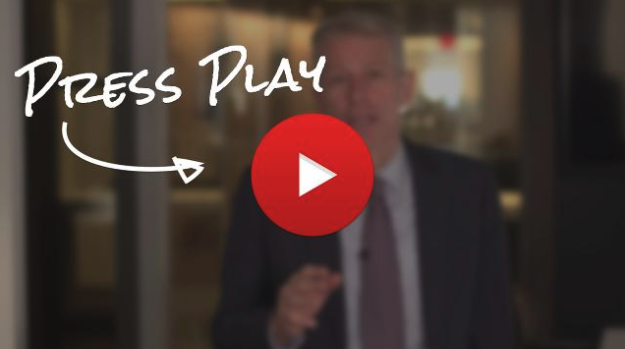This article was originally posted here
It wasn't long ago that Twilio (NYSE:TWLO) looked like an attractive bet as it was trading at a relatively cheap valuation, but the company's fiscal first-quarter results have sent the stock through the roof.

At the beginning of April, shares of the cloud communications specialist looked ripe for the picking in the aftermath of the March stock market crash caused by the novel coronavirus pandemic. There were concerns that Twilio's business may take a hit as key customers such as Lyft, Uber, and eBay reduce the usage of its services, prompting downgrades on Wall Street and sending shares lower.
But Twilio's latest results have put all those concerns to rest. First quarter revenue jumped 57% annually to $365 million, compared to consensus estimates of $328 million. What's more, it delivered $0.06 per share in adjusted earnings as compared to the market's expectation of an $0.11 loss. But the best part is that Twilio could get a shot in the arm thanks to COVID-19 and remain a top growth stock.

IMAGE SOURCE: GETTY IMAGES.
What's driving Twilio's growth?
Twilio's business got a boost after shelter-in-place orders and lockdowns to contain the spread of COVID-19 were implemented across the globe. COO George Hu pointed out on the latest earnings conference call that Twilio's average daily sign-ups jumped 25% from March 18 through March 30 as compared to the first 11 weeks of the quarter.
This bump in customer sign-ups isn't surprising as Twilio provides a service that could prove to be critical in a post-coronavirus world. The company helps its clients move their contact centers to the cloud from traditional on-premise call centers. Twilio's API (application programming interface) allows its clients to connect with their customers through several channels such as text, chat, and intelligent IVR (interactive voice response) systems.
The advantage of cloud-based contact centers is that they can be set up at a much lower cost than traditional call centers, as the latter requires investments in hardware, office space, etc. A third-party report points out that the cost to set up a cloud-based contact center is 60% lower than the cost of a traditional one.
What's more, a cloud-based contact center also allows customer service agents to work remotely since they simply have to install an application on their computers (and use the internet) to serve customers. This not only allows a company to keep costs in check but also allows its customer service arm to keep functioning even if offices remain closed for a prolonged period of time in light of social-distancing norms.
This seems to have accelerated the transformation from traditional on-site call centers to cloud-based ones. According to Twilio's estimates, half of the 15 million contact center seats that are currently in the market will move to the cloud by 2025. That's a big jump as only 17% of the current call center capacity was in the cloud before the pandemic struck.
Is it still a good bet?
Twilio's guidance shows that it is all set to sustain its momentum in the current quarter. The company anticipates revenue between $365 million and $370 million this quarter, which would be a 34% increase over the prior-year period at the midpoint.
The tight guidance range implies the company is confident of hitting its target. That's not surprising as Twilio management said that the company is witnessing “a net increase in usage relative to our expectations and strong growth in the overall business.” Additionally, Twilio has a robust balance sheet with $1.84 billion in cash and debt of $464 million.
In all, Twilio fits the bill of a coronavirus-resistant stock, but anyone looking to go long right now will have to pay a pretty penny. Twilio stock's latest surge has sent its price-to-sales ratio to 21, substantially higher than last year's average multiple of 12.
However, Twilio's valuation is rich for a reason right now. While the broader market has been rattled by COVID-19, its business is also holding up well, and its long-term growth prospects are accelerating.
At the same time, investors should keep in mind the potential pitfalls of investing in such a rich, high-growth stock. Any sign of weakness could send Twilio stock crashing, but the long-term story will remain intact as call centers move to the cloud.
Editor's Note:
Man who bought AMZN at $48 says buy TaaS now
Hi, Whitney Tilson here.
I made my mark on Wall Street over the past 20 years by starting my first hedge fund with just $1 million… which I ultimately grew into a series of funds worth more than 200 times that amount.
Along the way I met Presidents Clinton and Obama… have been asked to speak at the most prestigious business schools (like Harvard, Columbia, and Wharton)… and was fortunate to identify some of the best investments in the world, in the very early stages, including…
- Netflix when it was $7.78 a share (today it’s worth 4,800% more)
- Apple at $1.42 (it’s up 18,000% since then)
- Amazon at $48 (it’s up 4,000% since then)
I’m writing today because my team and I have found what we believe will be the next big tech trend that will make investors rich.
It’s called TaaS—and if you haven’t yet heard of this technological breakthrough, you soon will.
Over the next few years, TaaS will change the way you eat, shop, work, and travel. It will change the value of our homes and where we live. It will radically alter prices for airline and train tickets, gas, and even household goods. It could even help slow the spread of the coronavirus… and help get the American economy moving again.
Along the way, it could make you a small fortune.
Look, this is going to be the biggest trend affecting you and your money over the next few years—yet most Americans don’t have a clue.
And that’s why I’m going public today with the full story. Prior to the coronavirus, I traveled around America and the world for months (more than a dozen trips in the past six months), talking to every expert I could find.
I’ve put everything you need to know in a simple presentation, where you’ll even learn the name and stock symbol of my favorite TaaS investment in the world today.
No subscription, e-mail address, or credit card required.
You can watch or read my presentation for free right now. We’ve posted it on my research firm’s website, right here…
Best regards,
Whitney Tilson
CEO and Founder, Empire Financial Research
P.S. It’s not all good news, however. TaaS is going to cause a lot of people to lose money too. Dozens of well-known businesses will go bankrupt. But the truth is, the positive effects of this radical development far outweigh the negatives. Get the facts for yourself. Make sure you’re not on the wrong side of this trend. Click here to see my brand-new analysis…








